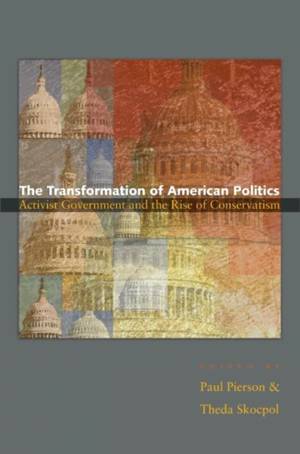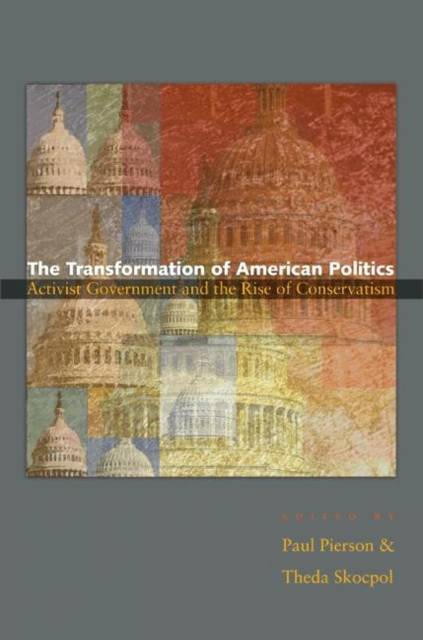
- Afhalen na 1 uur in een winkel met voorraad
- Gratis thuislevering in België vanaf € 30
- Ruim aanbod met 7 miljoen producten
- Afhalen na 1 uur in een winkel met voorraad
- Gratis thuislevering in België vanaf € 30
- Ruim aanbod met 7 miljoen producten
The Transformation of American Politics
Activist Government and the Rise of Conservatism
Omschrijving
The contemporary American political landscape has been marked by two paradoxical transformations: the emergence after 1960 of an increasingly activist state, and the rise of an assertive and politically powerful conservatism that strongly opposes activist government. Leading young scholars take up these issues in The Transformation of American Politics. Arguing that even conservative administrations have become more deeply involved in managing our economy and social choices, they examine why our political system nevertheless has grown divided as never before over the extent to which government should involve itself in our lives.
The contributors show how these two closely linked trends have influenced the reform and running of political institutions, patterns of civic engagement, and capacities for partisan mobilization--and fueled ever-heightening conflicts over the contours and reach of public policy. These transformations not only redefined who participates in American politics and how they do so, but altered the substance of political conflicts and the capacities of rival interests to succeed. Representing both an important analysis of American politics and an innovative contribution to the study of long-term political change, this pioneering volume reveals how partisan discourse and the relationship between citizens and their government have been redrawn and complicated by increased government programs. The contributors are Andrea Louise Campbell, Jacob S. Hacker, Nolan McCarty, Suzanne Mettler, Paul Pierson, Theda Skocpol, Mark A. Smith, Steven M. Teles, and Julian E. Zelizer.Specificaties
Betrokkenen
- Uitgeverij:
Inhoud
- Aantal bladzijden:
- 328
- Taal:
- Engels
- Reeks:
Eigenschappen
- Productcode (EAN):
- 9780691122588
- Verschijningsdatum:
- 19/08/2007
- Uitvoering:
- Paperback
- Formaat:
- Trade paperback (VS)
- Afmetingen:
- 162 mm x 234 mm
- Gewicht:
- 494 g

Alleen bij Standaard Boekhandel
Beoordelingen
We publiceren alleen reviews die voldoen aan de voorwaarden voor reviews. Bekijk onze voorwaarden voor reviews.










